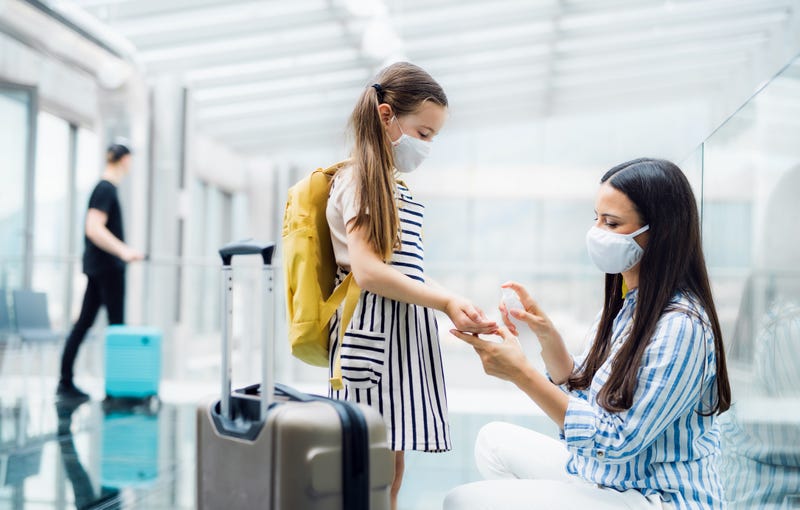
As the holidays approach, many are looking forward to reuniting with family that they might not have been able to see last year.
With all those reunions comes travel, and with travel, comes COVID-19 concerns.
Anyone over the age of 65 hoping to travel for the Thanksgiving and Christmas holidays should start looking into getting their booster shot now, said Dr. Monica Gandhi, professor of medicine at UCSF and Associate Division Chief of the Division of HIV, Infectious Diseases and Global Medicine at San Francisco General Hospital on Monday's "Ask an Expert" with KCBS Radio’s Holly Quan and Dan Mitchinson.

"My parents just got it yesterday, they're 87 and 80," she said. "They're going to visit my brother over these upcoming holidays."
For those traveling with kids, it is likely that the Pfizer 5-11 vaccine will be the first ready for distribution before the holidays. If the next couple steps of the process go as planned, the doses should become available in pharmacies and at pediatricians' offices by Nov. 4. It's going to take longer for the Moderna version to get approved, said Gandhi.
Before then, to help keep children protected from the virus, it helps to be seated in the middle seat on airplanes, with the vent overhead turned on, and masked.
If people are visiting with family members outside California, who might not be vaccinated or are vulnerable and haven't yet gotten their booster shot, it helps to get yourself tested to better ensure their safety.
If everything goes off without a hitch, the vaccine for ages 5-11 spells a new phase of the pandemic.
"This is something we've been waiting for a long time," she said. "This is kind of the final frontier of going back to normal life."
Not only will it make it easier for in-person learning to continue in schools, it also has a big implication for the Bay Area – several counties have asserted that eight weeks after the vaccine for ages 5-11 is made available, indoor masking restrictions will end.
While many are anticipating going back to normal, "It will take a while to adapt emotionally that this virus is with us," said Gandhi, but someday it's likely to be viewed the same way as measles, or other such diseases.
There will continue to be outbreaks in unvaccinated populations that decline to get vaccinated, that health professionals will continue to work on. There will be a sustained vigilance among children, to keep getting them vaccinated. Innovations in antiviral treatments will make it easier to treat the virus once people do get infected.
"It will fade in the background as just one more thing we live with," she said.
But it will be a difficult transition, particularly mentally. When Denmark dropped restrictions in September, visitors had a hard time feeling comfortable and safe walking around, business as usual, said Gandhi. And turning off the morbid fascination with hospitalization rates, deaths, and other statistics will be a challenge as well.
"At a certain point, we'll have to train our minds to not make that the only thing, because there’s so much to make up for, in terms of lost time," she added.


